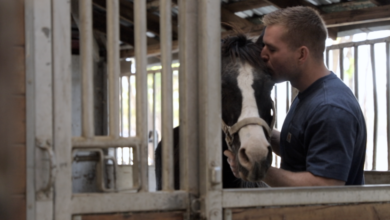
Artificial intelligence is being used in increasingly more areas and could now help predict breast cancer risks, a new study shows.
The study, which used five AI algorithms, found that when put to the test against the traditional Breast Cancer Surveillance Consortium risk model, AI performed better, according to the report published Tuesday in the journal Radiology.
The Breast Cancer Surveillance Consortium risk model is used widely to predict a patient's risk of developing breast cancer over a five-year period. The risk model takes into account information such as a patient's family history of breast cancer, age, and more to help predict breast cancer risk.
"Breast density is the imaging biomarker most commonly incorporated into clinical risk models," the study states. "But recent advances in AI deep learning provide the ability to extract hundreds to thousands of additional mammographic features."
Over 324,009 patients were initially included in the study, which was retrospective and conducted from 2016 to 2021. From that group a random cohort made up of 13,628 patients were chosen, with 193 of them having incident cancer.
All patients in the study started with a negative screening mammogram examination where there were no indications or evidence of cancer. The AI algorithms then examined these screenings developed a risk score for breast cancer in seconds, according to the study.
More on breast cancer screenings:Breast cancer screening should start at age 40 – 10 years earlier than previous advice, group says
When the AI algorithms examined these initial screenings, they performed better than the risk model in predicting a person's breast cancer risk in the span of zero to five years.
Additionally, the accuracy of prediction became even better when the AI was combined with the Breast Cancer Surveillance Consortium risk model, the study states.
The results of the study show an "approach for improving breast cancer risk prediction beyond clinical variables such as age, family history, or the traditional imaging risk biomarker of breast density."
"AI provides a powerful way to stratify women for clinical considerations that necessitate shorter time horizons such as risk-based screening and supplemental imaging," it states.
More on AI in the U.S.:President Biden warns artificial intelligence could 'overtake human thinking'
Source link









